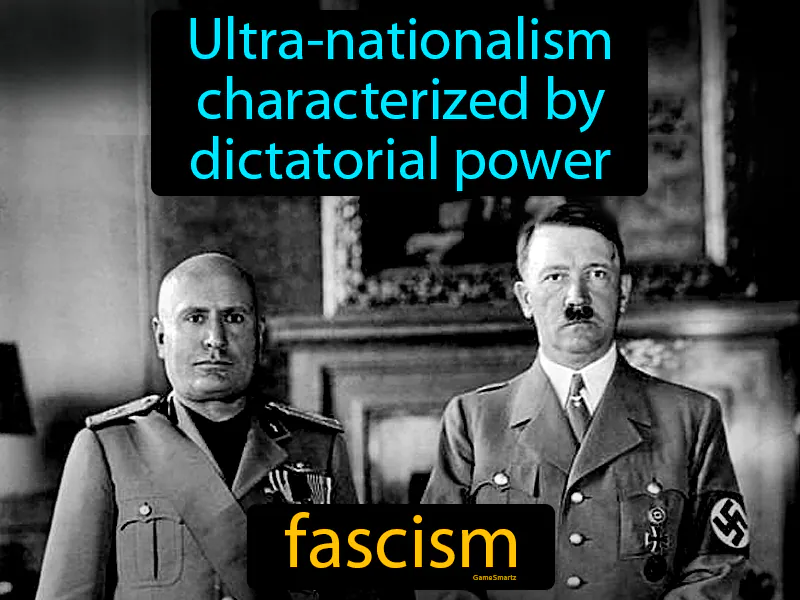Fascism
Fascism: Easy to understand
Fascism emerged in the early 20th century as a response to economic instability, social unrest, and a desire for national strength after World War I. It became significant during the lead-up to World War II when leaders like Mussolini in Italy and Hitler in Germany used fascism to gain dictatorial control, promising to restore national pride and economic prosperity. This ideology led to aggressive expansion, human rights abuses, and ultimately contributed to the outbreak of World War II. Today, the concept of fascism still matters as it reminds us of the dangers of extreme nationalism and authoritarian rule. For example, when we see groups promoting hate or violence against others based on nationality or race, it's essential to remember the past and promote tolerance and democracy to avoid repeating history.

Practice Version

Fascism: Ultra-nationalism characterized by dictatorial power. Fascism. Fascism is a political ideology that centralizes power under a dictator, suppresses dissent, and often promotes extreme nationalism and racism.